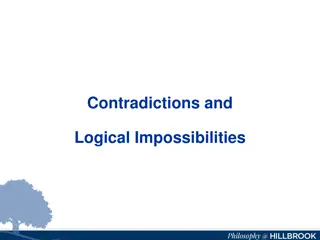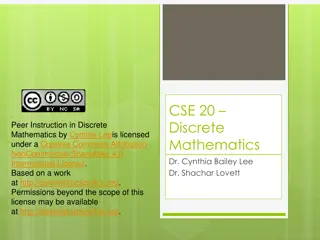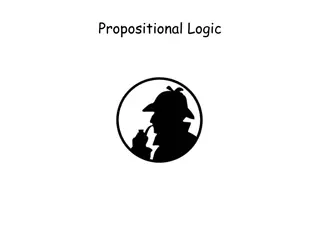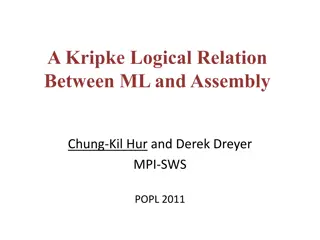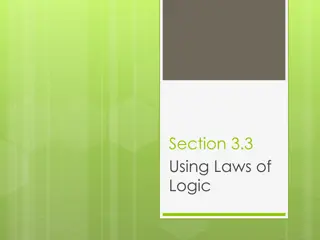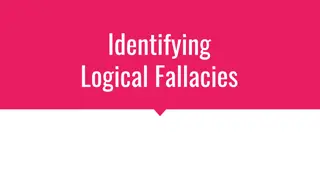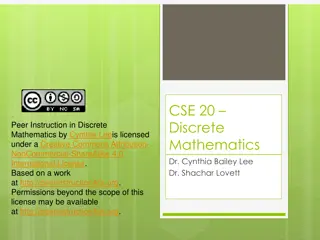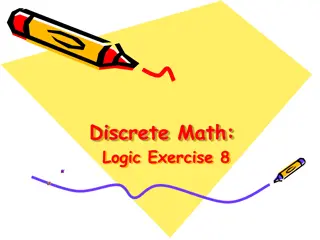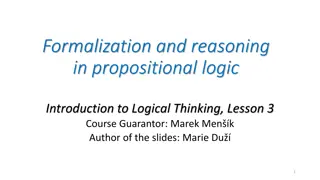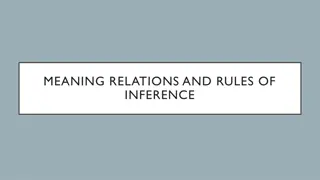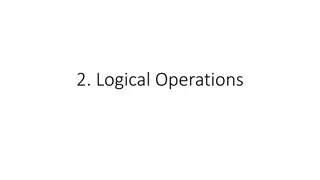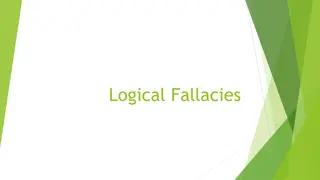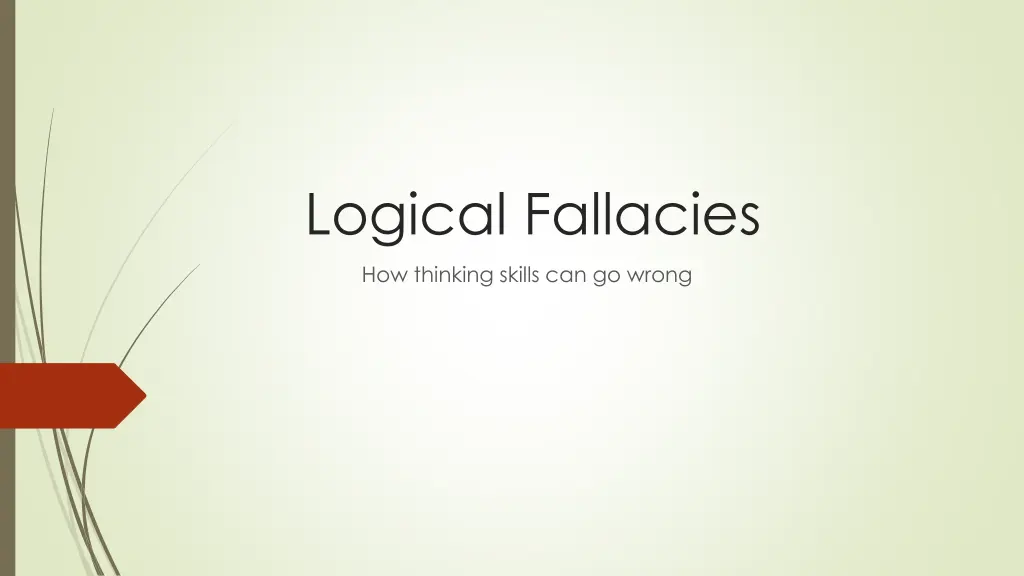
Avoiding Logical Fallacies in Thinking
Learn how logical fallacies can impact thinking skills, such as mistaking correlation for causation, engaging in ad hominem attacks, making false analogies, hasty generalizations, either/or reasoning, and appeals to popularity or tradition. Understanding these fallacies helps in critical thinking and argument evaluation.
Download Presentation

Please find below an Image/Link to download the presentation.
The content on the website is provided AS IS for your information and personal use only. It may not be sold, licensed, or shared on other websites without obtaining consent from the author. If you encounter any issues during the download, it is possible that the publisher has removed the file from their server.
You are allowed to download the files provided on this website for personal or commercial use, subject to the condition that they are used lawfully. All files are the property of their respective owners.
The content on the website is provided AS IS for your information and personal use only. It may not be sold, licensed, or shared on other websites without obtaining consent from the author.
E N D
Presentation Transcript
Logical Fallacies How thinking skills can go wrong
What is a Logical Fallacy? A logical fallacy is a false, or logically flawed argument that appears to be true at first. They are a misuse of thinking skills These thinking mistakes tend to happen in predictable ways, and we can learn the patterns!
Correlation versus causation Just because two things have happened together does not mean that one thing caused the other. When ice cream sales go up, home break ins go up. This frequently occurs, but one didn t likely cause the other. What else may cause this correlation?
Ad Hominem Attacks Translates to an attack against the person. In debate we want to attack arguments, not people. Exception: The person you are attacking has been inappropriately held up as an expert by your opponent when they should not be. Example: Jim, a doctor, is not qualified to be giving medical advice because his blood pressure is not a perfect 120/80.
False Analogies Comparing two things that are not the same. In false analogies, relevant differences are often overlooked. Grapes and plums are purple foods that are good for you, purple syrup is also good for you. What are the relevant differences?
Hasty Generalization A logical claim that rests on insufficient evidence to prove its point. Sometimes these claims could work if more evidence is used? Saying My family and I have never had the problem this topic is trying to solve; therefore, the problem is not real in society. Your experience might not be like everyone else s.
Either/ Or Reasoning This fallacy presents choices as there being only two options. Most often, more than two policy choices will be available. Do not let your opponents box you into either/or thinking! We can fund education OR healthcare. What are the other options?
Appeal to Popularity or Tradition Sometimes, people try to claim that something should be done because it is popular or has always been done that way. This is not a good argument. There may be little evidence to support doing popular or traditional things. We like evidence in debate! Example: Students have been going to school for five days a week for decades, so we should not consider a four-day week.
Straw Man This fallacy takes an argument made by someone else and makes it weaker. Then, the person attacks this weaker argument. This is done to make the attacker s plan look superior. We do not want to mischaracterize our opponents' arguments. It looks bad to the judge. Example: Debater one: climate change is causing weather problems. Debater two: My opponent thinks a hurricane in Florida causes drought in California!
Circular Reasoning This is a form of argument that uses a claim to prove itself. We must use evidence other than the conclusion to prove the support for an argument. Example: You must obey the law because it is illegal to commit crimes. How would we make this better?
Appeal to False Authority This fallacy occurs when a debater uses statements or beliefs of someone who is not in a good position to know the subject matter as evidence. Example: Asking a police officer what choices to make on educational policy. The police officer is probably not in a position to know how to best educate children. Who should we ask instead? Sometimes, people who are bad authorities on one subject can be a reliable expert on another.
Composition and Division Composition occurs when a person assumes that because something is true of the parts, it is true of the thing itself. Division occurs when someone assumes that because something is true of a thing, it is true of all of the individual parts. Example: Airplanes can fly. Landing gear is part of an airplane. Therefore, landing gear can fly.
Activity Everyone make two arguments USING different of the logical fallacies Next share your arguments, then everyone try to identify which fallacy it is, and how can it be answered?




